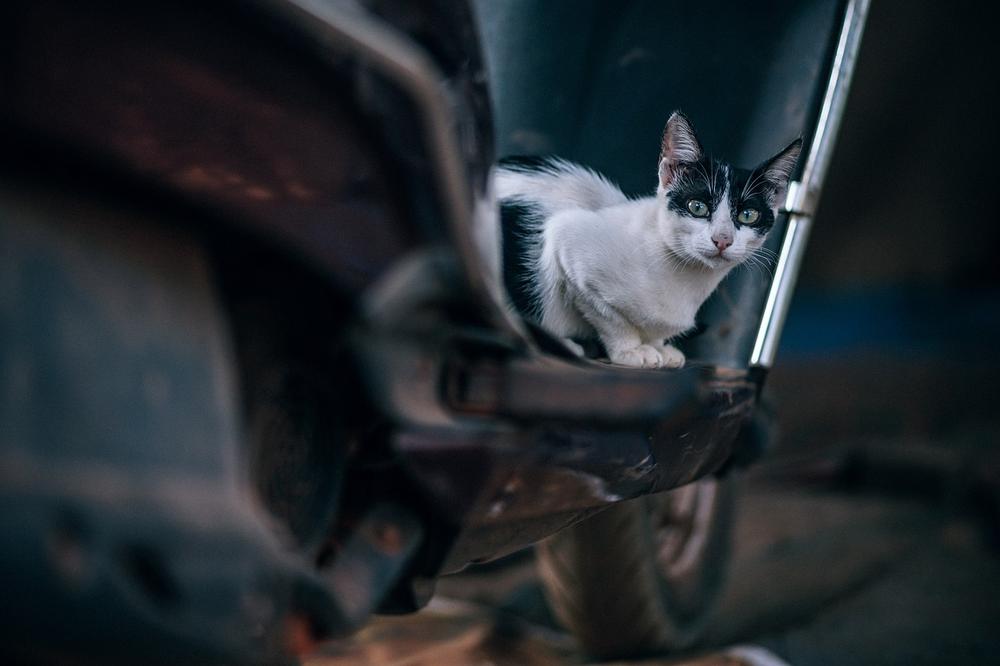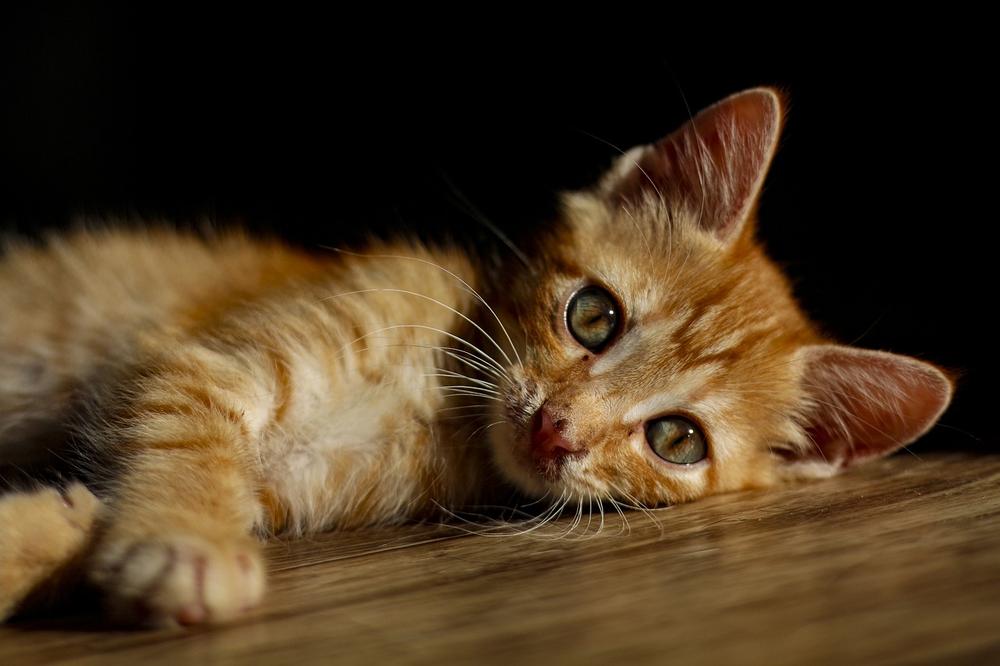Why Do Cats Wander Off for Days? Deeper Reasons Explained

Worried sick, pacing the floor, sleepless nights—sound familiar?
Ever wondered why your beloved feline friend mysteriously goes MIA for days on end, leaving you with an anxious void?
Trust me, I've been there. 🐱
Let's dive deep into the catnip-covered maze of answers.
Let's begin.
Reasons Why Cats Can Wander Off for Days
Cats are natural predators and need to satisfy their instincts
Cats have a burning desire to stalk, chase, and catch prey.
It's just their natural hunting instincts at work.
So, it's no surprise that they often wander off in search of adventure!
They always find something interesting out there.
Cats have an insatiable curiosity that leads them to wander
Curiosity is in the DNA of every cat. They love exploring their surroundings and discovering new things.

They're always wondering what's hidden around the next corner. Their adventurous spirit drives them to wander off and see what surprises await them.
There are various reasons why cats may go missing
Sometimes accidents happen, and cats might get injured or stuck somewhere. You have to keep an eye on them and ensure they're safe.
And let's not forget that cats can be quite choosy when it comes to their living environment. If they find another place that suits them better, they won't hesitate to move on.
It's interesting to note that sick or elderly cats may choose to wander off in search of peace and seclusion.
They might want to protect themselves from other animals, even until the very end.
By understanding these reasons, you can ensure the well-being and safety of your feline friend.
Main points I'll expand upon further down this article:
- Cats can wander off for varying lengths of time, but typically stay within 200 meters.
- Female cats rarely get lost and tend to stick around their feeding area.
- Cats have a natural homing instinct and will often return on their own.
- Neutering or spaying your cat can decrease their urge to roam.
- Play sessions can help tame hunting instincts in cats.
- Male cats are more likely to go missing than females.
- Effective strategies to find lost cats include checking neighbors' houses and spreading the word.
- Preventive measures like scattering dirty litter can help keep cats from wandering off.
- Environmental changes and lack of stimulation can cause cats to go missing.
- Techniques to keep cats indoors include maintaining a regular schedule and engaging in interactive playtime.
And now that we've discovered the reasons behind our feline friends' wandering adventures, let's delve into how long they may actually be absent for and what factors can influence their duration of exploration.
Trust me, you don't want to miss these insightful findings!
How Long Do Cats Wander Off For?
How long do cats go missing for, you ask?
Well, it really depends on the cat and their situation. But here’s what you need to know:
- On average, they might be gone for around 2 days. But hey, don't freak out if it stretches into weeks or even years in some cases.
- If your furball is on the prowl for love, they may stay away longer. Who can blame them! So if your kitty has been MIA for a while, they might have found their soulmate.
- Cats are pretty independent creatures. They know how to fend for themselves out there. So try not to stress too much, your little adventurer knows the drill.
- Now, if you have a female cat, paying attention to her heat cycle and keeping her indoors during this time can help prevent those prolonged disappearances.
- These sneaky felines usually stick to a range of about 200 meters. But guess what? They've been known to roam up to a whopping 18 miles in just one week! Talk about covering some serious ground.
- Lastly, if your fluffy friend has only been gone for a day, take a deep breath before panicking. Give them some space, they'll most likely find their way back home.
Each cat is unique in their wandering ways.
So keep an eye out for any strange behavior or signs of distress. 😺

But here's something you might not have considered...
Even though cats have a strong homing instinct, there are certain factors that can decrease their likelihood of returning home.
Want to know what these factors are?
Keep reading to find out...
Do Cats Always Come Back?
While cats have a strong instinct to find their way back home, factors like new buildings or territorial disputes can hinder their return. Female cats, especially those with kittens, are more likely to stick around if provided with stability and convenience. Taking precautions to secure their boundaries is important.
Cats, my friend, have this powerful instinct to find their way back home, you know?
But listen up...
Sometimes, certain things can hinder their return.
Like when new buildings pop up or neighbors stir up trouble in their territory.
And unfortunately, these factors can decrease the chances of your cat coming back (not the best news, but it's true).

Now, let me fill you in:
Cats are absolute masters at navigating streets and alleys, finding their way back to you if they're not too far away.
They're like little adventurers, right?
Guess what else?
Female cats, in particular, crave stability and convenience. So, if you provide them with food and care close to home, or even better, if they have a litter of cute kittens (just precious!), there's a pretty good chance they'll stick around. Don't stress too much though. When your precious feline friend disappears for a bit, don't be surprised if they come waltzing back before you even notice. Taking precautions to secure your cat's boundaries is never a bad idea, my friend.
Better safe than sorry!
Does Neutering Prevent Cats From Wandering Off?
To keep your cat from running away, here are 10 effective ways:
- Get your cat spayed or neutered.
- Keep their hormones in check.
- Minimize their need to find a mate.
- Trigger their natural instinct to come back home.
- Show them love and reassurance when they return.
- Look for any possible injuries.
- Boost their instinct to stay put by getting them fixed.
- Reduce their inclination to roam for long stretches.
- Neuter male cats to decrease territorial behavior.
- Encourage regular playtime to manage their wanderlust.
By following these steps, you can be sure that your furry buddy stays close and avoids the risks that come with wandering off.
And finally, if you're wondering why your beloved feline friend is running out of the litter box while pooping, I have the answer for you.
In my blog post, you'll find out all the possible reasons behind this peculiar behavior.
Trust me, it's an essential read for any concerned cat owner.
Just click here: Cat Runs Out of the Litter Box While Pooping.
Missing Neutered and Un-Neutered Cats: What's the Connection?
Male cats, whether neutered or unneutered, are more prone to wandering off than female cats.
This is because of their instinctual drive to find a mate and establish territory.
Spaying or neutering a cat does not eliminate these hunting instincts.
However, engaging them in play sessions can help mitigate their natural tendencies. You have to note that male cats are more likely to go missing than females.
This sheds light on the reasons behind their vanishing acts.
Understanding this natural behavior can provide valuable insights into why male cats may be more prone to disappearing.
Effective Strategies to Keep Your Cat from Disappearing
To make sure your cat stays safe, you need effective methods.

Here's what you can do:
- Give your cat an entertaining indoor setup with toys, scratching posts, and perches.
- Get to know your neighbors since cats sometimes like to explore neighboring yards or houses.
- Find help from cat lover communities in your area or online for support and advice on finding your missing cat.
- Share photos and info about your cat on social media to increase the chances of someone spotting them.
- Consider microchipping your cat as it greatly increases the chance of getting reunited if they wander off.
- Keep an eye out during the night when cats tend to be more active, as they may come back.
- Make friends with your neighbors so they can let you know if they see your cat around.
- If your cat has been missing for a while, use humane traps or ask animal shelters for assistance.
- Secure your home by sealing windows and doors to prevent any potential escapes.
- Monitor your cat's behavior and their surroundings for any changes that could trigger them to wander off.
Cats can disappear for different reasons, but taking precautions will help keep them safe at home.
And that wraps up today's article.
If you wish to read more of my useful articles, I recommend you check out some of these: Cat Sleeping Next to a Litter Box, How to Find a Lost Cat in Winter, Cat Growling After Giving Birth, Cat Meowing Purring After Giving Birth, and Why My Cat Humps Me
Talk soon,
-Sarah Davis